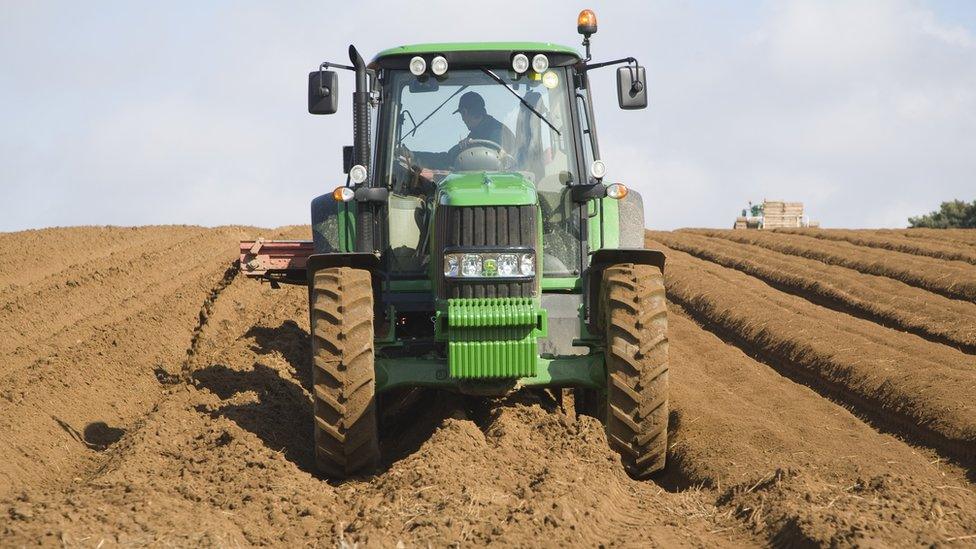Northern Ireland's 700,000 fields to be tested in soil quality scheme
- Published
- comments
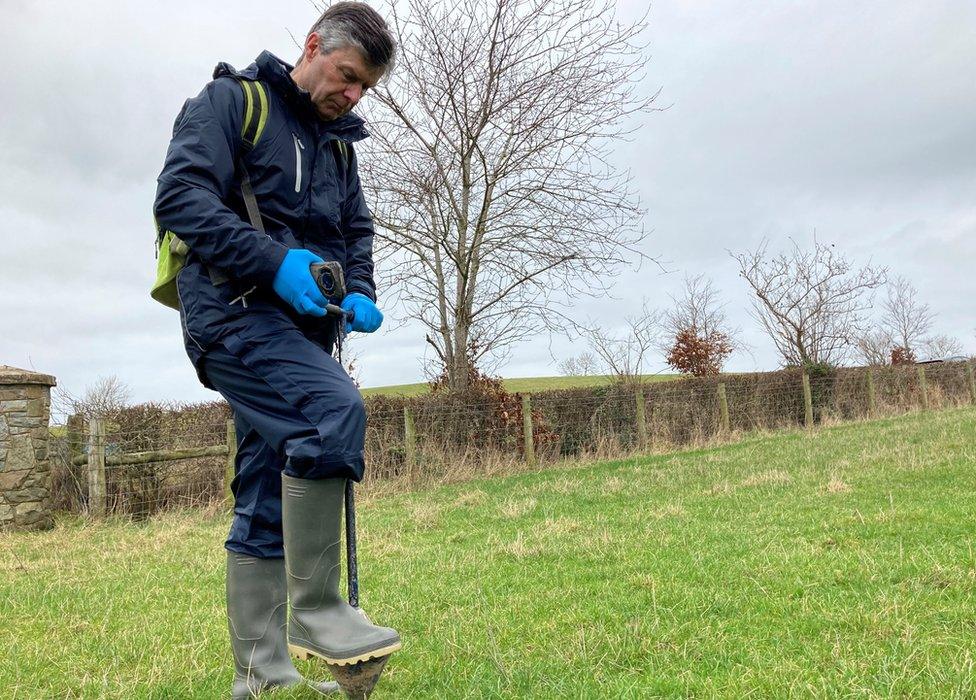
The free scheme is the first of its kind in the world and all 700,000 fields in Northern Ireland will be analysed
"You've got to use what you've got - and that's the land."
For more than three generations, John Mercer's family have been farming on his land near Dromara in County Down.
Now the secrets of his soil have been laid bare through the Soil Nutrient Health Scheme.
The second phase of the scheme opens on Monday for farmers in County Fermanagh, south Tyrone and west Armagh to register.
It will be an eligibility condition when the farm sustainability payment starts in 2026.
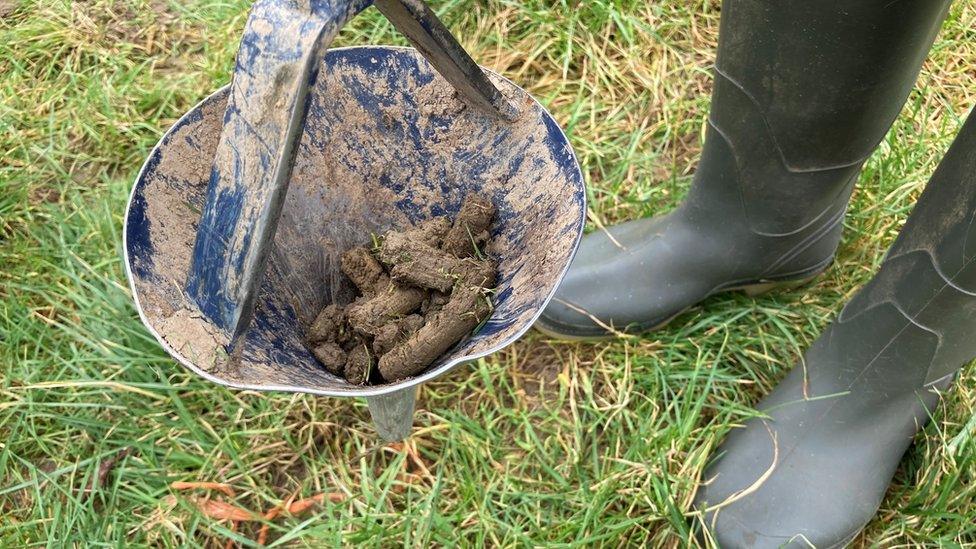
A funnel is used to lift small plugs of soil from each field
The free scheme is the first of its kind in the world and will mean all 700,000 fields in Northern Ireland are analysed for their nutrient content over four years.
It has been funded by the Department of Agriculture, Environment and Rural Affairs (Daera) up to £45m.
The aim is to help farmers tailor their fertiliser to each field's requirements, saving them money, improving efficiency and reducing harm to the environment.
More than 90% of farms in zone one, County Down and north Armagh, registered for assessment.
About 140 samplers walked up to 30 fields a day in a wide W shape, using a simple funnel device to lift small plugs of soil from each field.
Those plugs get bagged, tagged and sent away for testing.
Each farmer gets an individual report and after training at the College of Agriculture, Farming and Rural Enterprise, can apply fertiliser appropriately to improve the soil quality in each field.
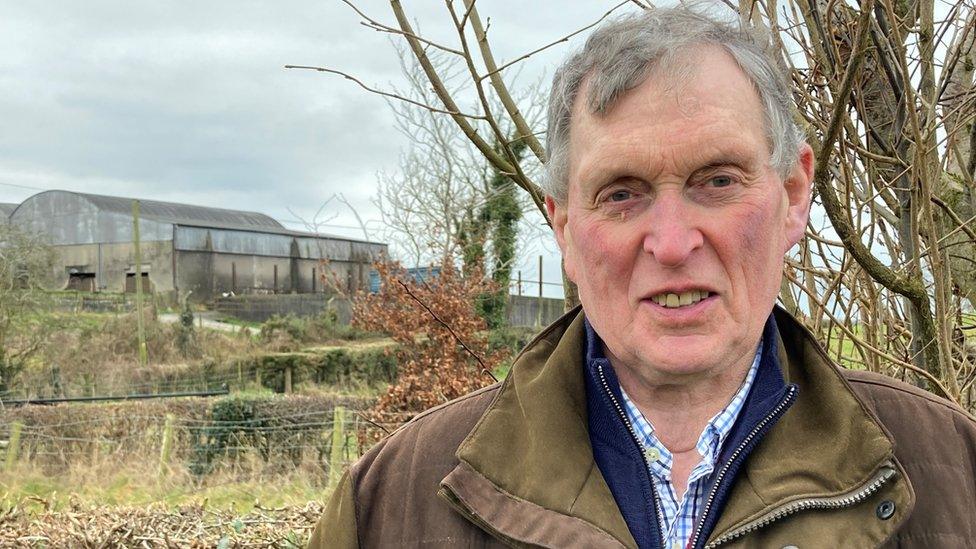
John Mercer says the scheme is one of the most useful things for his farm
"It's one of the most useful things possible," said Dromara farmer John Mercer.
"You want to increase your production of your grass, therefore reducing your costs and more profitability of the farm, and also reduce the soil nutrient waste."
John had sampled some of his soil in the past but it was too time-consuming to do thoroughly while maintaining a farm.
Now former social housing manager Jim Pow has done the work for him.
He decided to train as a sampler after a friend mentioned the scheme to him.
"It's been a big, long walk in the country," he said.
"I'm allocated a cluster of fields and using the GPS I just move from one field to the next, taking samples back and then uploading them on to the computer."
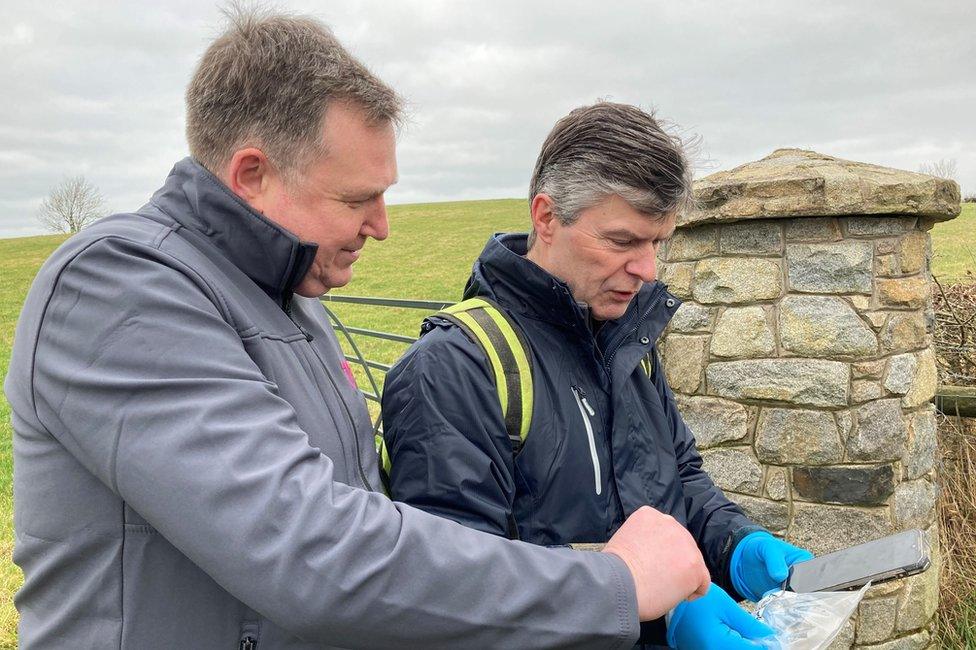
Donal Doyle and Jim Pow from RPS, the company overseeing the testing process
It may sound straightforward but the planning and co-ordination of a project on this scale, even broken down in to four zones over four years, is huge.
"The complexity in the project is really around the technology side of things in terms of sampling every field in Northern Ireland - 700,000 fields over a four-year period," said Donal Doyle from RPS, the company looking after the process.
"That requires quite a bit of planning and organising.
"We use leading edge technology to do that, to make what is a complex project because of its scale as easy as possible for the samplers when they get into the field."
That technology includes live GPS tracking so samplers can see that they are walking the right pattern for a representative sample.
Sampling has mostly stopped for the summer because animals are back in the fields and crops are growing. Fertiliser is also applied during this time, which could affect the results if sampling is done at the same time.
Level the playing field
The scheme is the product of work by scientist Rachel Cassidy and her colleagues at the Agri-food and Biosciences Institute, which manages it.
"The Soil Nutrient Health Scheme is an attempt to level the playing field across farms in Northern Ireland by providing all farmers, over the next four years, with comprehensive soil sampling and analysis of their fields, providing them with estimates of carbon in the ground and the above-ground biomass, their hedges and woodland.
"And also giving them maps of their farms showing areas at high risk of erosion, which is where you'll lose material from the surface and into water bodies.
"So it's a comprehensive package and it's completely free."
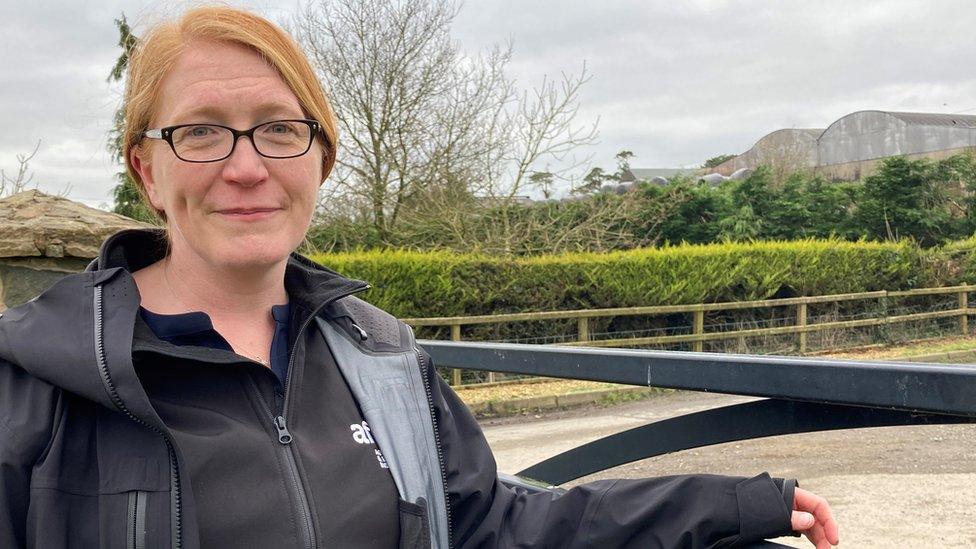
Scientist Rachel Cassidy says the scheme could contribute to better water quality in Northern Ireland
As well as helping farmers save money and improve their efficiency against a backdrop of soaring feed, fertiliser and fuel prices, the scheme aims to protect the environment by reducing the risk of excess nutrients polluting nearby waterways.
"Agriculture dominates this landscape," said Ms Cassidy.
"It has the greatest impact on water quality in Northern Ireland. So anything that you can learn by being in the scheme about where to avoid spreading slurry and ensuring that you've optimum nutrients for your crops, but not so much that you can lose it - all of that slowly should try and contribute to better water quality in Northern Ireland as well."
Mr Mercer has one piece of advice for those who coming after him in this process.
"Go ahead and get registered and do it. This is your resource. Unfortunately, it's in the top inch and a half. If you don't use the grass to the best of its ability, you'll never be profitable."
Related topics
- Published27 April 2023
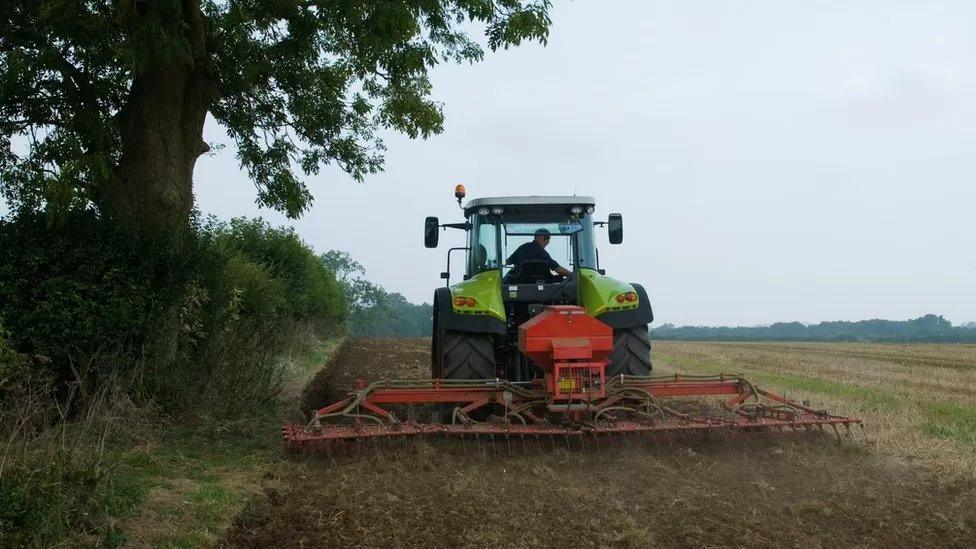
- Published28 October 2022
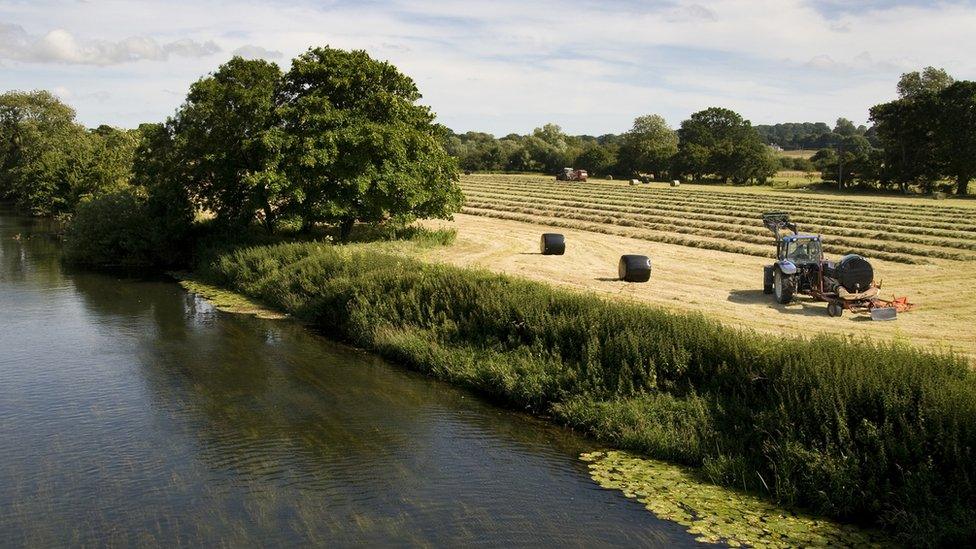
- Published16 January 2023
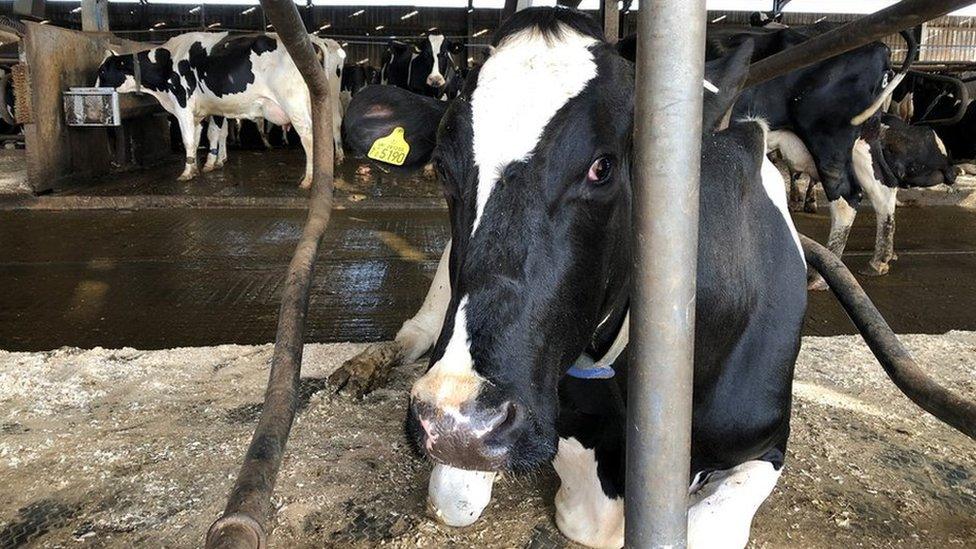
- Published8 June 2023
